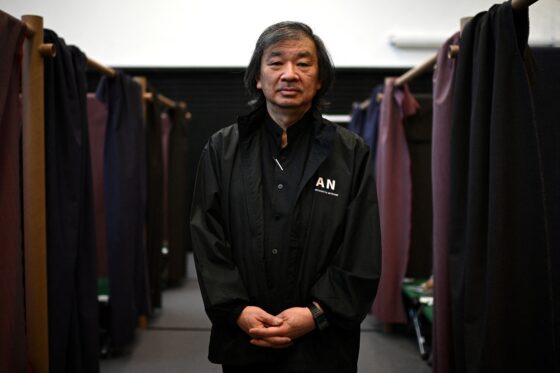
Japanese architect Shigeru Ban, winner of the 2014 Pritzker Prize, had his famous cardboard tube emergency shelters installed in two Parisian gymnasiums that welcomed people passing through from Ukraine to give them more privacy.
Women and children parading in the Marie-Paradis gymnasium located near the Gare de l’Est, requisitioned by the Paris City Hall in early March, can now rest out of sight on the 80 camp beds: Wednesday, March 23, in just an hour and a half, a handful of students from an architecture school in Versailles on 42 private spaces using nested cardboard tubes and fabrics offered by manufacturers.
The operation was repeated the next day, in the gymnasium near the Gare de Lyon, from which refugees from Ukraine leave the French capital for southern Europe, to set up some twenty cells.
“Privacy is a fundamental human right”believes Shigeru Ban, 64, inventor of these temporary structures that he has deployed around the world since the mid-1990s, according to natural disasters and humanitarian crises.
As an advisor to the United Nations High Commissioner for Refugees (UNHCR), the architect worked on emergency shelters for victims of the 1994 genocide in Rwanda, the 1995 Kobe earthquake and the next ones that happened in Japan, the 1999 Turkey, 2001 in India, 2016 in Italy…
In Chelm, a Polish town on the border with Ukraine, where many and many refugees reside, he had 1,200 such structures built, including 880 to be sent to the country ravaged by the army’s invasion.
Some displaced persons testified to him that they… “much appreciated” this intimacy, he says. “A woman stopped crying once she was in that personal space.”
Acceptable conditions
In Paris, where the architect of the Seine Musicale in Boulogne-Billancourt and the Center Pompidou in Metz has an office, he presented this development to the town hall.
Refugees from Ukraine can pass through these rooms “two to three days in acceptable conditions”knowing that“usually they stay between 24 and 48 hours”says Léa Filoche, assistant (Generations) in charge of solidarity.
On Wednesday evening, almost all beds in Marie-Paradis were occupied, according to the Aurore association that manages the reception. The Town Hall “getting ready to open up to others” gymnasiums according to the needs formulated by the state, also indicated Léa Filoche.
(AFP)